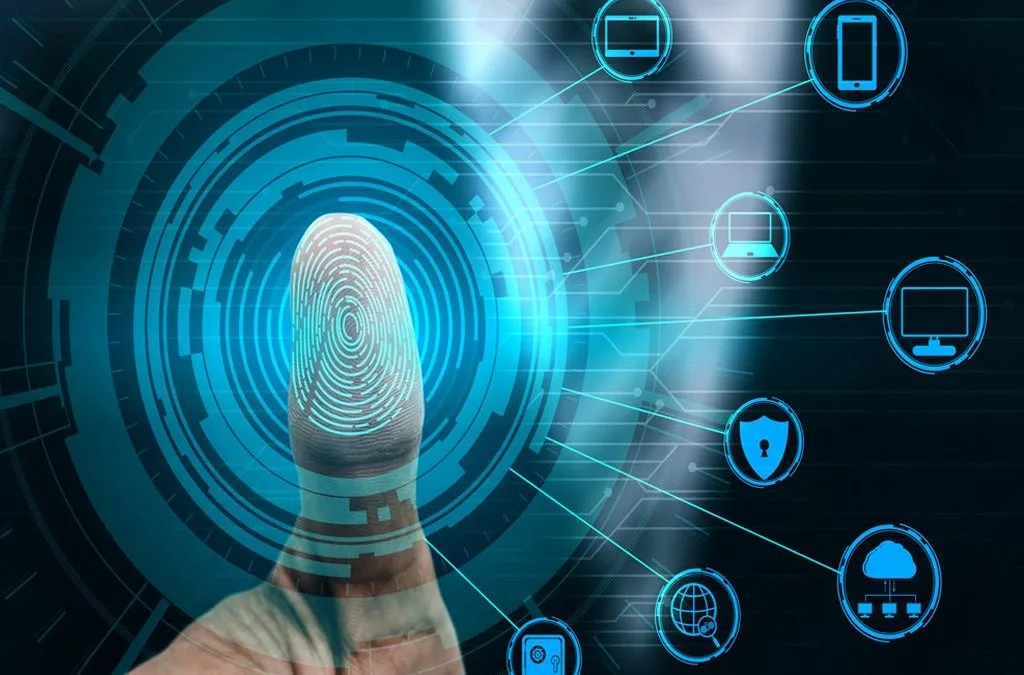Can Blockchain Revolutionize Digital Identity Verification?
Blockchain technology provides a transparent ecosystem that allows data to be hidden at high security levels using advanced algorithms. Although blockchain technology is a technology known for Cryptocurrencies, which are digital currencies, it is actually a very critical technology for digital identity verification. Blockchain technology is decentralized, reliable and transparent. As an ecosystem, it facilitates digital identity verification processes.
Thanks to blockchain technology, users can continue their identity verification online and digitally without the need for any official intermediary. The algorithms and digital ledgers of blockchain technology are unchangeable and transparent. Thanks to this high level of security, identity verification is much more reliable and reliable than traditional methods and can be done more quickly.
How Does Blockchain Ensure Secure And Trustworthy Digital Identity Verification?

Blockchain technology provides a safer and faster digital identity verification process by not allowing another user’s data to be changed, thanks to distributed ledger technology. Our identities can be considered a type of Data in digital ecosystems. It is possible to prevent these data from being accessed by another user by digitally encrypting the data.
This encryption process is possible with blockchain technology. Data encrypted within the blockchain technology ecosystem cannot be accessed by any other user except authorized persons. The data recorded by encrypting on the blocks called digital ledgers are protected with high algorithms.
Therefore, both a transparent ecosystem is provided and thanks to this decentralized structure, users can store their data safely. Among these data, one of the most important for users is digital identities. Thanks to blockchain technology, digital identity verification is faster. This will increase our efficiency by accelerating our entry into applications and systems in both financial and other fields.
What Are The Advantages Of Self-Sovereign Identity On The Blockchain?
SSI, that is, Self-Controlled Identity, is a technology that allows users to control and securely store their identity information. Self-Controlled Identity is securely protected in a decentralized transparent system within the blockchain ecosystem. Compared to traditional data storage methods, there is no risk of identity theft in blockchain ecosystems, thanks to Self-Controlled Identity. Thanks to this high security and privacy, users can complete their digital identity verification processes much faster while also protecting their data securely.
In the near future, when the digitization process in many areas of life increases, Self-Controlled Identity (SSI) technology will become more widespread and will be frequently preferred by people as a blockchain solution. Businesses and investors who can adapt to these technologies today will be more profitable in the near future.
While today digital identities are used only when opening digital wallets and online banking platforms, I predict that in the near future they will become a tool that will be widespread enough to be used even when enrolling in school. For this reason, I can recommend that businesses and governments integrate with the issue of digital identity from now on. Especially for businesses, they should not be aware of such innovations in order to stay strong in competitive markets.
What Are The Privacy And Security Implications Of Blockchain Identity?

The most obvious advantages that blockchain technology offers to users include High level of privacy, High level of security, blockchain identity allows users and investors to securely protect their identity data, data in blockchain ecosystems is stored in a transparent and digital ledger that is publicly available.
Therefore, your private and security identity data is kept separate. While traditional identities that cannot be used by the user pose many security risks, blockchain identities created using blockchain technology can be stored securely and confidentially as digital data.
Blockchain technology, like cryptocurrencies, can cause a technological revolution not only in the field of Finance but in all areas of life because it carries security and privacy at high levels due to its transparent and decentralized ecosystems and makes it easier to store very important data such as identity information compared to traditional methods.
How Are Governments And Businesses Exploring Blockchain For Identity?
Although blockchain technology has become well-known in recent years with its products such as cryptocurrencies, it is not yet a technology that has been sufficiently adapted and integrated for governments and businesses. Many countries are quite inadequate in legal regulations for blockchain technology, but governments and businesses are using blockchain technologies for a type of identity verification.
Because they started to use blockchain authentication processes, the identity information given to blockchain ecosystems is securely stored and verified. For example, our data such as passports, driver’s licenses, citizenship documents can be stored digitally on blockchain ecosystems. Although governments do not yet recognize blockchain ecosystems, many businesses and technology companies verify the accuracy of the data stored on blockchain systems.
Because block dowry systems are managed within a transparent ecosystem called digital ledgers, there is no possibility of any other user changing your data. This high level of security and confidentiality offers a new authentication process in all areas. In the near future, governments will make relevant regulations and authentication in this sense. It will carry out its processes with higher confidentiality and security by using blockchain technology.
What Challenges Does Blockchain Face In Widespread Identity Adoption?
Although the Blockchain has been very popular in recent years, it is not a technology officially recognized by many governments. Although digital cryptocurrencies, which are the products of blockchain technology, are popular, these currencies are not yet accepted as a type of asset by many banks and financial institutions.
The widespread identity adoption of blockchain technology is subject to many difficulties and lack of standardization. Blockchain, which is problematic in terms of scalability, may not become widespread due to the lack of official regulations, although users receive a high level of privacy and security services.
One of the most common authentication methods in the near future will be blockchain technology, because both companies and governments must adapt to this technology that provides a high level of security and privacy. Businesses that start their integration today will be stronger in the near future.
See you in the next post,
Anil UZUN
